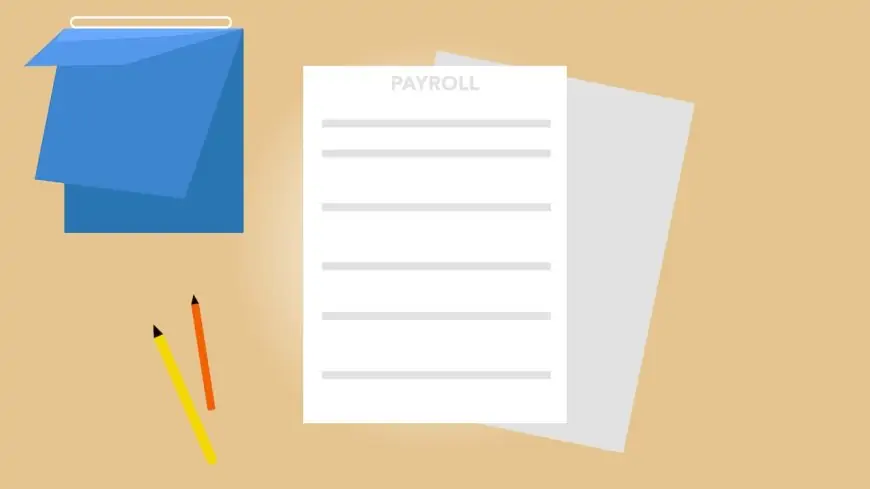A payroll overpayment can cost your business time and money. It can also cause issues with your employees if you ask them to repay the overpayment through future paycheck deductions. When you discover a payroll error, the first step is to determine what happened. Then, it would help if you created a plan for recovering the overpayment.
Recover the Overpayment
As a business owner, you should be prepared to handle payroll errors if they occur. One of the most common mistakes is payroll overpayment, where employees receive more money than they earn. These mistakes can lead to cash flow problems and tax payment issues, so they must be corrected. Various reasons, including manual calculation errors, entry errors of working hours or inaccurate paid time off payouts, can cause a payroll overpayment. To correct the mistake, work alongside payroll solution companies to review your payroll records for the affected pay period to identify any inconsistencies. Then, you can determine the cause of the overpayment and find out which employees were impacted by it. The next step is to make a plan to recover the overpayment. It will involve calculating the overpayment amount and notifying the employee that they must repay it. It's also worth noting that each state has regulated protocols for how companies must recover overpayments, so follow these guidelines. Some methods for recouping the overpayment include deducting it from an employee's next paycheck or splitting it up over several future paychecks, depending on the situation. However, it's important to note that the Department of Labor and state wage overpayment laws limit how much an employer can recoup from employees through paycheck deduction.
Determine the Cause
Whether the overpayment is caused by a data entry error, a miscommunication, or something else, it's important to determine what caused the issue. It can help you take steps to prevent similar mistakes in the future. It is a great opportunity to review your processes and procedures with employees to see if there are areas for improvement. For example, requiring managers to sign off on timesheets before payroll is submitted may prevent errors that can lead to overpayment. Similarly, training staff on the importance of double-checking and auditing data before it's processed for payroll can reduce human errors that could result in overpayments.
It's also essential to check state laws regarding how and when you can recover an overpayment. Some states have strict requirements, including notifying the employee and obtaining their consent before deducting money from a future paycheck. As soon as you become aware of an overpayment, immediately notify the employee. It can be done by emailing their dates and briefly explaining the overpayment situation. They can then discuss a plan with you to recover the money that is being overpaid. For instance, they may agree to have a certain amount deducted from their future paychecks or prefer to pay back the overpayment over a specified period.
Notify the Employee
As soon as the payroll error is detected, it's essential to notify the employee so that they can take action accordingly. Whether the mistake was caused by a simple clerical error or a more complex mathematical one, employees need to know that the company is taking steps to rectify the situation as quickly as possible. Employees should also know how the overpayment will be recovered if applicable. In many cases, this will involve deductions from future paychecks. It could be done in a lump sum or spread over several paychecks. Some employers also allow employees to use PTO to offset overpayments.
Depending on state laws, there may be a period within which the company can recover the overpayment. Sometimes, the best option may be to let the overpayment go. It can be particularly true if the amount is small, and especially if it means that the company will have to spend time running a correction payroll. The employee may even be able to agree to repay the amount owed in some other way, such as through personal checks or money orders.
Adjust Future Payrolls
A payroll error can be embarrassing for a business to find themselves in. Depending on how it is handled, it could also be expensive and cause reputation damage. While it may seem fair to request that an employee give back the money they were overpaid, this can be a sticky situation for both parties. A better option is to work with employees to recover the overpayment over time, allowing them to cover their expenses while being reimbursed for the extra money they were paid. One way to do this is to reduce the employee's gross wages on future paychecks, effectively canceling the overpayment. It is possible for salaried and hourly employees only if done before the payroll cutoff.
Other options include deducting the overpayment from an employee's future paychecks until the total amount is recovered. It is a more reasonable approach for most employees and can be easier on your company's bottom line. A final consideration is adjusting your internal processes to avoid an overpayment in the future. Whether it's an honest mistake like forgetting to clock out or a data entry error, it's important that the root cause is identified and preventive measures are put in place. It could be as simple as making sure that all departments and employees involved in the payroll process are aware of the need to double-check calculations and cross-check reports before producing the final payroll files.







![[WATCH VIDEO] Sophie Rain and sister Sierra Rain as Black Spiderman goes viral [WATCH VIDEO] Sophie Rain and sister Sierra Rain as Black Spiderman goes viral](https://www.sociallykeeda.com/uploads/images/202403/image_140x98_660976c59cce0.webp)



![[WATCH VIDEO] Kristina Koko In India Viral Video Story - Download Video Showing her Private Parts [WATCH VIDEO] Kristina Koko In India Viral Video Story - Download Video Showing her Private Parts](https://www.sociallykeeda.com/uploads/images/202402/image_140x98_65bdef6f1a7a4.webp)

![[FULL WATCH VIDEO] Will Levis And Gia Duddy Leak Video Viral On Social Media [FULL WATCH VIDEO] Will Levis And Gia Duddy Leak Video Viral On Social Media](https://www.sociallykeeda.com/uploads/images/202405/image_140x98_6651e7ae8038d.webp)


